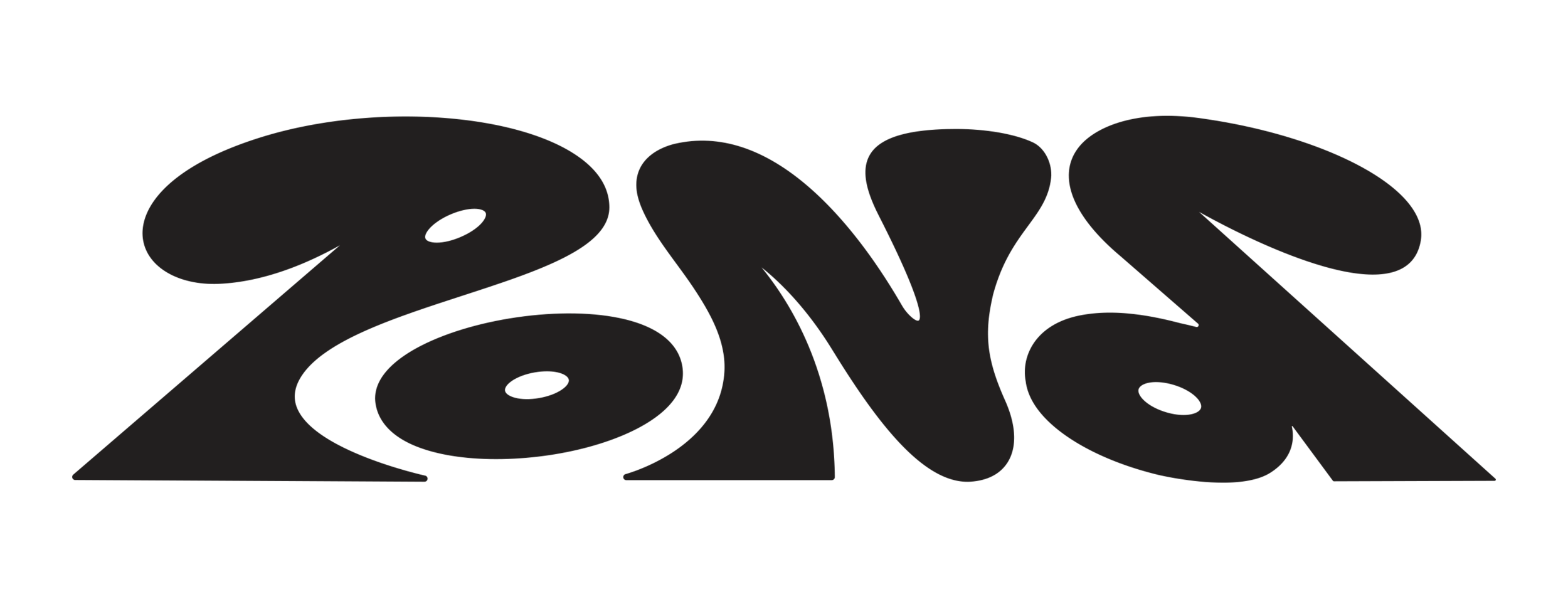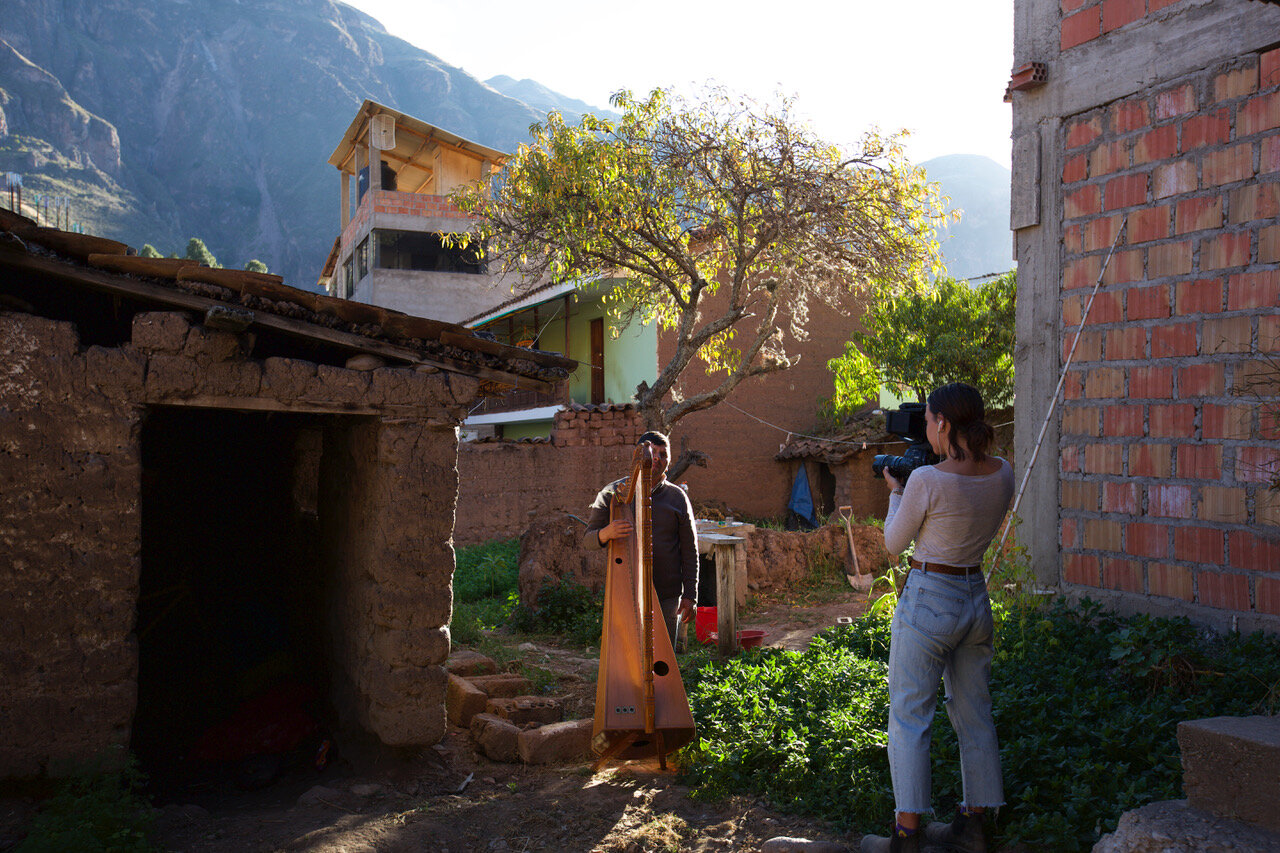Mollie Moore & Lucia Florez on Balancing Creative & Personal Partnerships Through Filmmaking
Interview by Mollie Moore and Lucia Florez
Artists Mollie Moore and Lucia Florez met while studying documentary filmmaking In New York City. They have since gone on to make three internationally recognized films together, A Word Away, Paper Thin and Mama. Below we learn of how they were able to balance a creative and personal partnership with one another as well as the journey they have been on together.
Lucia: Would you like to describe how we met?
Mollie: We met at film school in New York, where we met a lot of important people in our lives.
Lucia: Yes, it was a very diverse, small group but we were tight.
Mollie: Yes, we were a very small group, but everyone was unique in their own way. We were from all over the world and it worked in a very strange and nice way. You ended up being the person I worked with the most.
Lucia: Yes, I remember crewing up for our first major project and I remember asking you first if you wanted to be my cinematographer for Paper Thin, movie that I made in New York about Victoria. We were shooting in New York and I really liked your style, so in a bar in Brooklyn I asked you if you wanted to shoot my film and then you asked the same thing back, which I never knew if it was a compromise or you wanted to…
Mollie: I wanted to! I guess if you’re asking me I should ask you (laughing). No I wanted you to shoot my film too, I liked that you asked me. We then ended up making a film together in New York. We shot two films over the course of 6 months, but the main part of the filming for both films took place over two months, which was a lot of work.
Lucia: It was May and June.
Mollie: One month in New York, one month in Maine. How do you think we progressed over those two months? Or maybe we didn’t progress, maybe we regressed…
Lucia: Paper Thin was the first film we made together. We were living in New York and studying in New York and I wanted to make a film about queer migration. In that journey I met Anton who was transitioning into being Victoria and they were also applying for asylum. I asked you one day in a bar if you wanted to be my cinematographer and I was really excited that you said yes as I really liked your style. I thought we could make a great team and I think we did. How was it for you working on that film?
Photo courtesy of Mollie Moore
Mollie: That was our first project working together. It was a complicated shoot because we were filming in New York with a very small crew and the schedule would often be changing as it does in documentary. I think It was a beautiful journey because we became very close with Victoria herself and we built a relationship over time with her. I think she connected to us both as individuals. There were some really hectic shooting days where we were running around and losing each other at Pride parades but there were also a lot more controlled, observant, smooth days. We were definitely learning during those three weeks how to navigate one another’s needs. I think regardless, when you’re shooting a documentary the director is focusing on one thing and the DP is trying to set up and follow what the director is doing. That dialogue can take some time to build. We were learning a lot whilst capturing.
Lucia: What was your favorite part to shoot in that project?
Mollie: I really liked the day we went round to Victoria’s house and had lunch with her. We were in Long Island City and it was the first time she introduced us to Victoria as she was still in a very early stage of her transition. To be allowed to witness that and capture that and eat lunch with each other in such a relaxed and trusting environment was really nice.
Lucia: There was a friendship starting and she knew about our lives too. I see her like a little sister… or maybe she sees me like a little sister. I also liked the other shoot days where we would observe and shoot the world around us. We also tried to have those moments in Cusco when we were shooting my other film. I really enjoy the process of being very observant of the life that is happening around you, taking the time to set up your shot, I really enjoy that process. Executing the vision that you have. I think more so in documentary when you are following the story and shooting verité you are very restricted to following the action, that’s out of your control. So having those small moments of creative control was really nice… A day after finishing my shoot we left New York to go to Maine and start your film. What was your film about?
Mollie: My film was also on the topic of migration. It focused on a young man from South Sudan who was trying to understand his own journey with mental health and his life in the US after migrating and he did this through the medium of poetry. The film was definitely a different feeling and style to yours. I think we spent more time in Maine shooting it but I think that’s because I felt like we needed more time to build the trust and relationships there.
We definitely had some beautiful moments where we would film around Portland or filming at the farms we were able to observe but there were visions I had with how I wanted to tell the story but I found whilst filming that a lot of it was about observing and it simply unfolded in front of us. I really enjoyed the moments of being in the background. The conversations between Moon and Cosmo, I communicated to you what it was I wanted and then I would allow you get on with that. By the time we had got to the last days of the shoot on the lake we had done so much and driven around what felt like the whole of the Maine state. Waking up at 5am to capture a sunrise. I felt like the progression of the film and the way we worked together flowed really beautifully. Whilst Cosmo was figuring things out in his mind, we were also figuring out the film alongside him. What happens in the film was simply unfolding in real time for all of us…
Lucia: How was the creative process of producing the story?
Mollie: I went to Maine with a vision of what I wanted it to look like visually and themes that I wanted to include. There was always this idea of poetry because we were aware there was a spoken word night coming up in the South Sudanese community whilst we were filming and we had already met the whole community prior to filming. I always knew I wanted Cosmo to be a part of it, but I went with the intention that John (Cosmo’s father) and Cosmo himself would tell different aspects of the story in equal amounts. But when we started to get to know Cosmo more, his story… I’m not sure what it was about his story that held me so close to him, but it moved me. Every single time he spoke he moved me. John, of course is such an important part of the story because he tells us where they came from and what has happened to them. Cosmo was going through something and living through his own journey of discovery right in front of us. I was totally captivated by that. I didn’t want to push it because it seemed to be coming quite naturally and in a very nuanced way. The way he speaks is nuanced, its never 100% black and white. To me that spoke more to mental health and how complex the topics we were talking on were, they are not black and white.
Photo courtesy of Mollie Moore
Lucia: Now switching from me directing you, to you directing me, looking back I’d have to say that in real life we also had a lot of back and forth in this creativity process. When I’d be directing I’d also ask for a lot of feedback and your opinion. I know that these roles are defined, but we did create these films very much together.
Mollie: Jumping forward a year we were making our third film together and by that point I had been working a lot. So by that point our working relationship had grown massively and we had both become better at doing what we were doing with one another. The way we interacted was more professional and less relational during the working day.
Lucia: Where did you notice this improvement?
Mollie: I guess, knowing what we needed to do personally, away from one another. I needed to set up a whole interview setup, whilst you were figuring out how you were going to take on the interview that was about to take place, because it was a personal film.
Lucia: This third film we did was a personal film I directed and you were the Director of Photography. It was about the relationship with my Mum in Cusco, Peru. The story of the film was in the year I was turning 32, the age that my Mum had me, I would go on a trip with her as an excuse to talk about our own mother daughter relationship, around the topic of my sexuality within a Latin American setting. It was very multi layered because you were a character (partner of Lucia), I was a character and my Mum was too. It was very real.
Mollie: The topic of the film required a lot of our own emotions. It was a highly emotional film to make but if we didn’t have any boundaries during the shoot it would have been messy. There were emotional moments during the filming, but that’s because we were under a lot of scrutiny not only as filmmakers but the roles we were playing within the film.
I had met your Mum once before, but it was the first time your Mum and I were getting to know each other. We did very well but the circumstances we were talking about were complicated for everyone, especially you and your Mum. We were talking about a past that at one point she didn’t agree with and I was a part of your present. In some ways, what I represented, whilst standing behind the camera and filming it was very complex. Some of the topics you were commenting on were whether you wanted to be a mother, or whether you felt like you could be a mother in the way that you envisioned in the setting of South America. Not only were we capturing a story, we were questioning our own futures and realities under the lens of being part of the queer community, that was hard. It was a healing place, a very beautiful and happy time. We’ve had some adventures.
Lucia: We’ve had some adventures, some on film, some not.


